Update: end results in Nepal
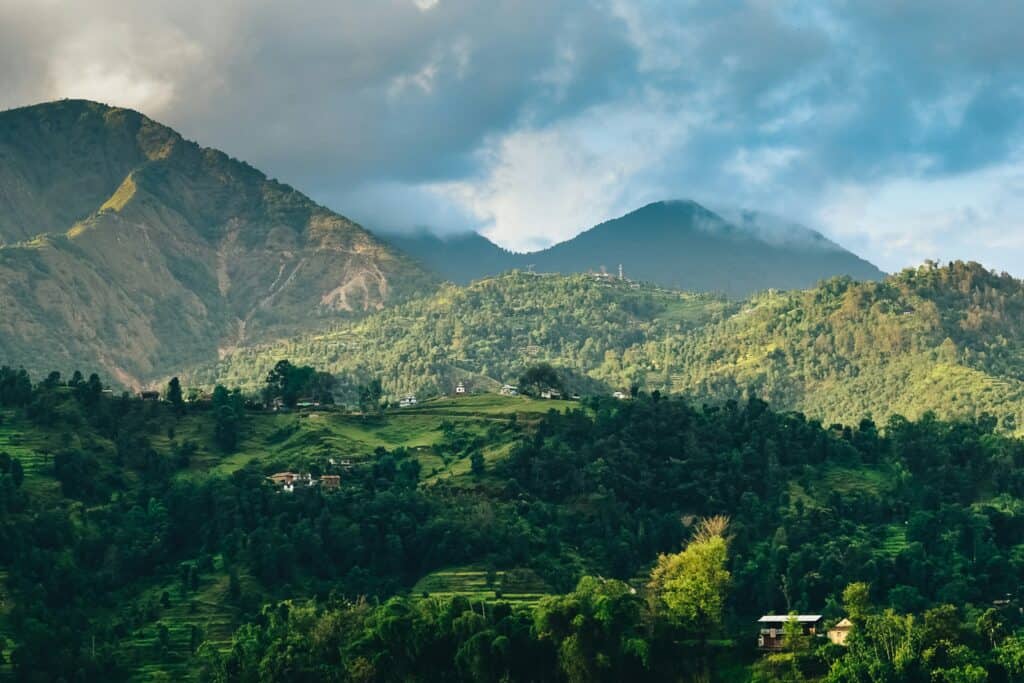
Water by Women
After three years of hard work, our project Water by Women is coming to a successful close in Nepal.
By constructing and restoring water systems in the hilly districts of Sindhupalchowk and Dolakha, 2,647 people gained direct access to safe drinking water at home. Women took a leading role in managing the water supply and received training in maintenance and administration.
Read on for the final results of the Water by Women project.
Update: 10 October 2025
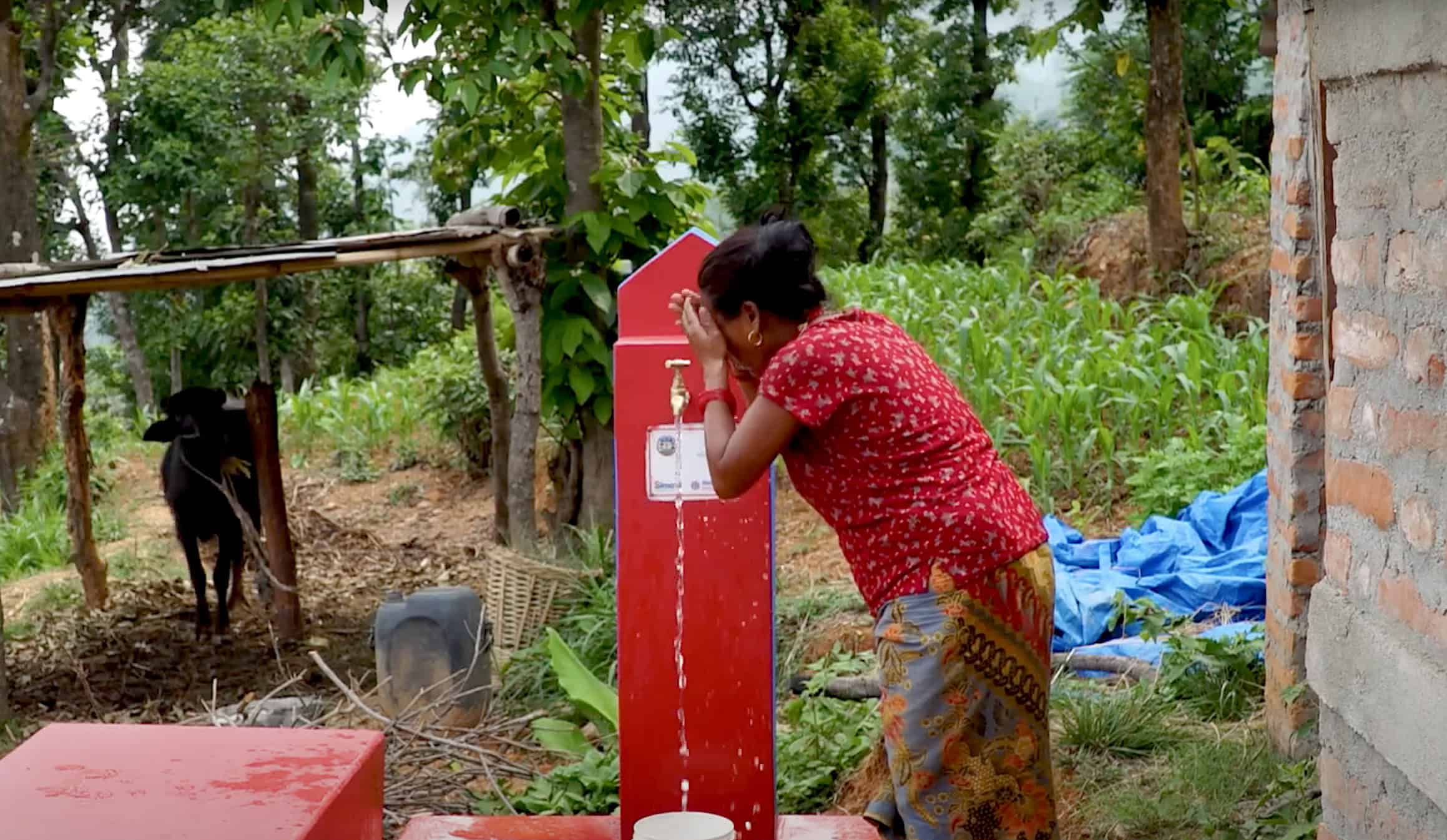
Clean drinking water and new chances in nepal
The Water by Women project is carried out in two hill districts of the Bagmati Province in Nepal: Sindhupalchowk and Dolakha.
These areas were severely affected by the 2015 earthquake, which destroyed more than 80% of the water supply systems and public infrastructure.
The project places special emphasis on supporting people — especially women — from marginalised groups, such as the Dalit and Janajati communities, who still face limited access to water and struggle with low socioeconomic status.
“
For many Dalits and Janajati women, having safe water nearby has brought practical changes: less time spent fetching water, more time for income, education, and family. Their participation in public audits and community meetings has also helped build trust across different social groups. By making space for those once left behind, the project has made community ownership fairer and stronger.
— Simavi, Implementing Partner
“
10 VILLAGES receive SUSTAINABLE drinking water systems
10 drinking water supply schemes were constructed and restored providing 2,647 people with access to safe drinking water directly at their homes. The systems were built in accordance with national standards and are designed to withstand floods and landslides.
Local water committees were established to manage the drinking water systems. In total, 50 women and 36 men received training in governance, financial management, and maintenance. Each committee was officially registered with the municipality, and for every system, a local maintenance worker was appointed to carry out daily maintenance and minor repairs.
All water systems are insured against damage. The insurance premiums are paid by the local water committees through user water fees. Each system also established a maintenance fund managed by local cooperatives. These funds generate interest and serve as reserves for emergency repairs.
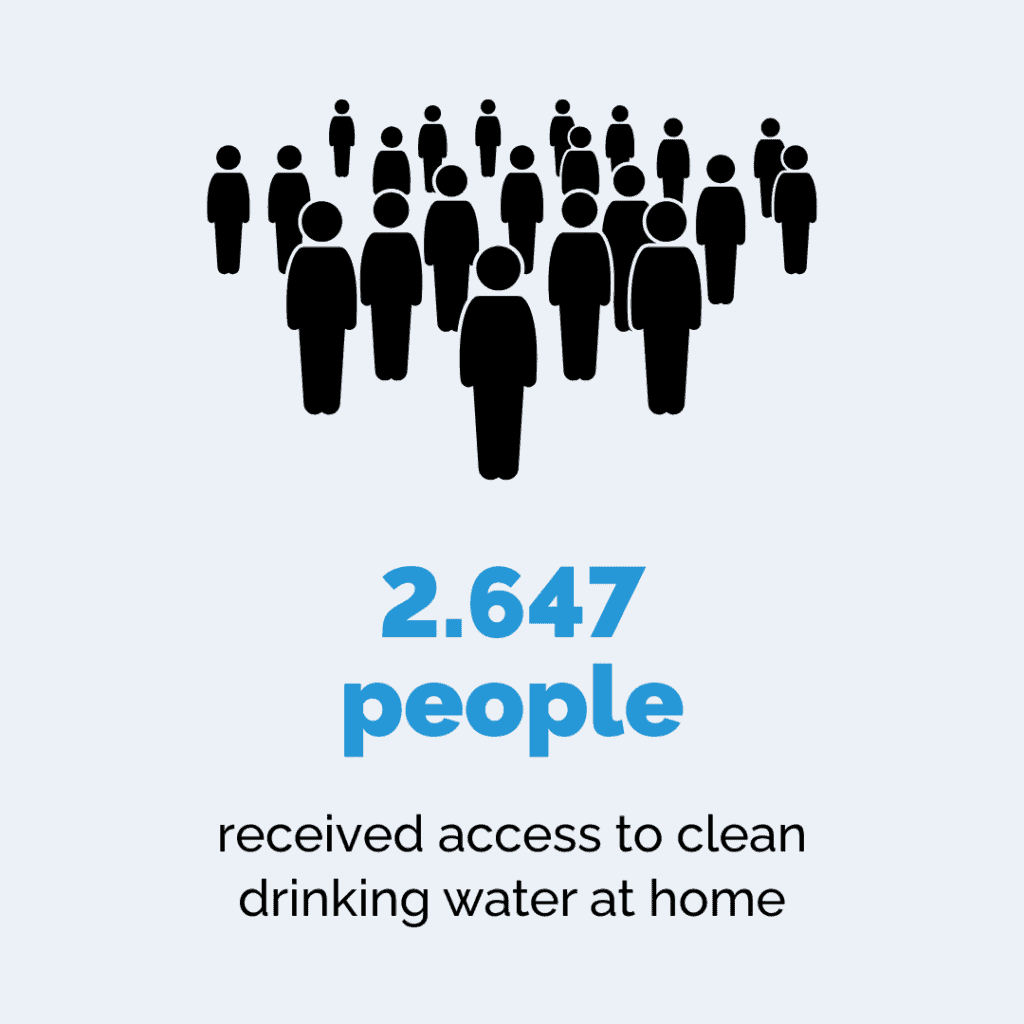
SO FAR: community experiences
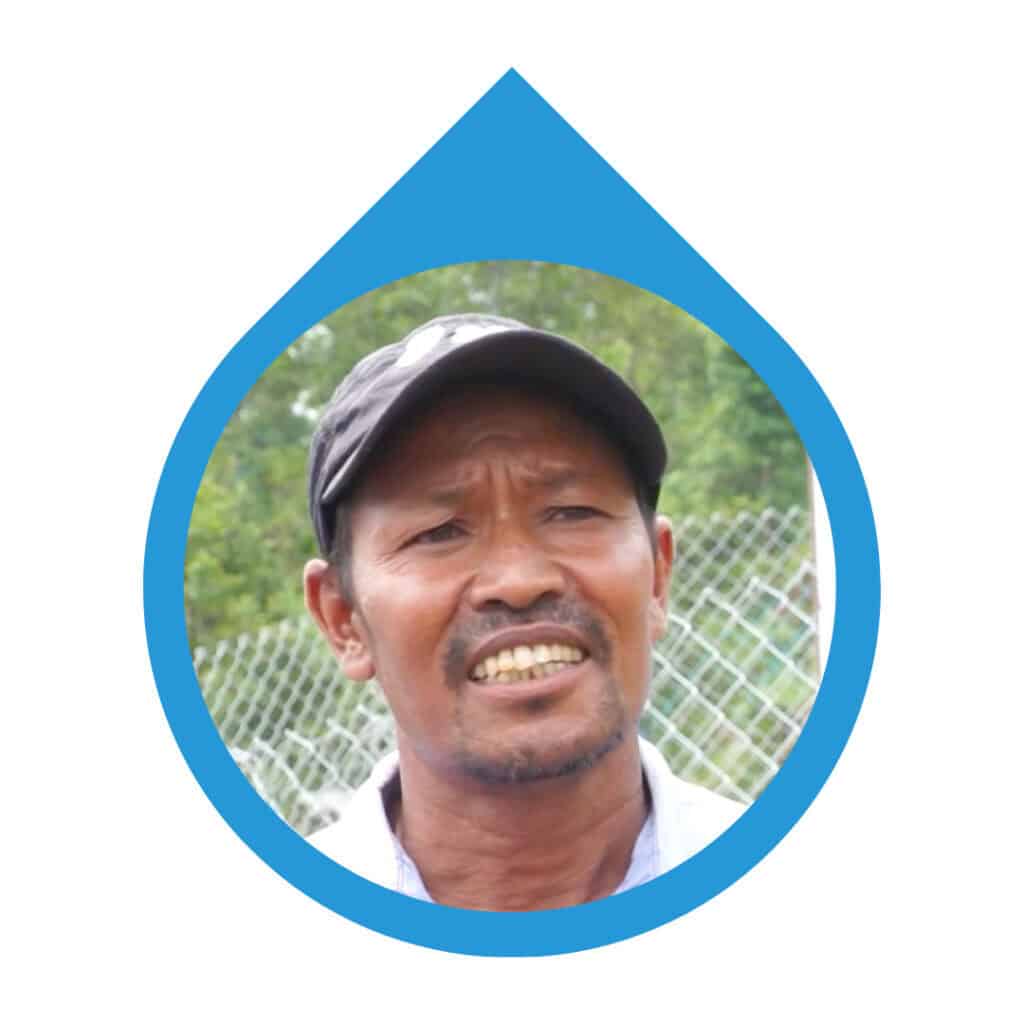
“Previously, women had to endure long queues to collect water. This challenge has now been resolved thanks to the projects”
— Krishna Bhahadur Majhi
User Committee Member
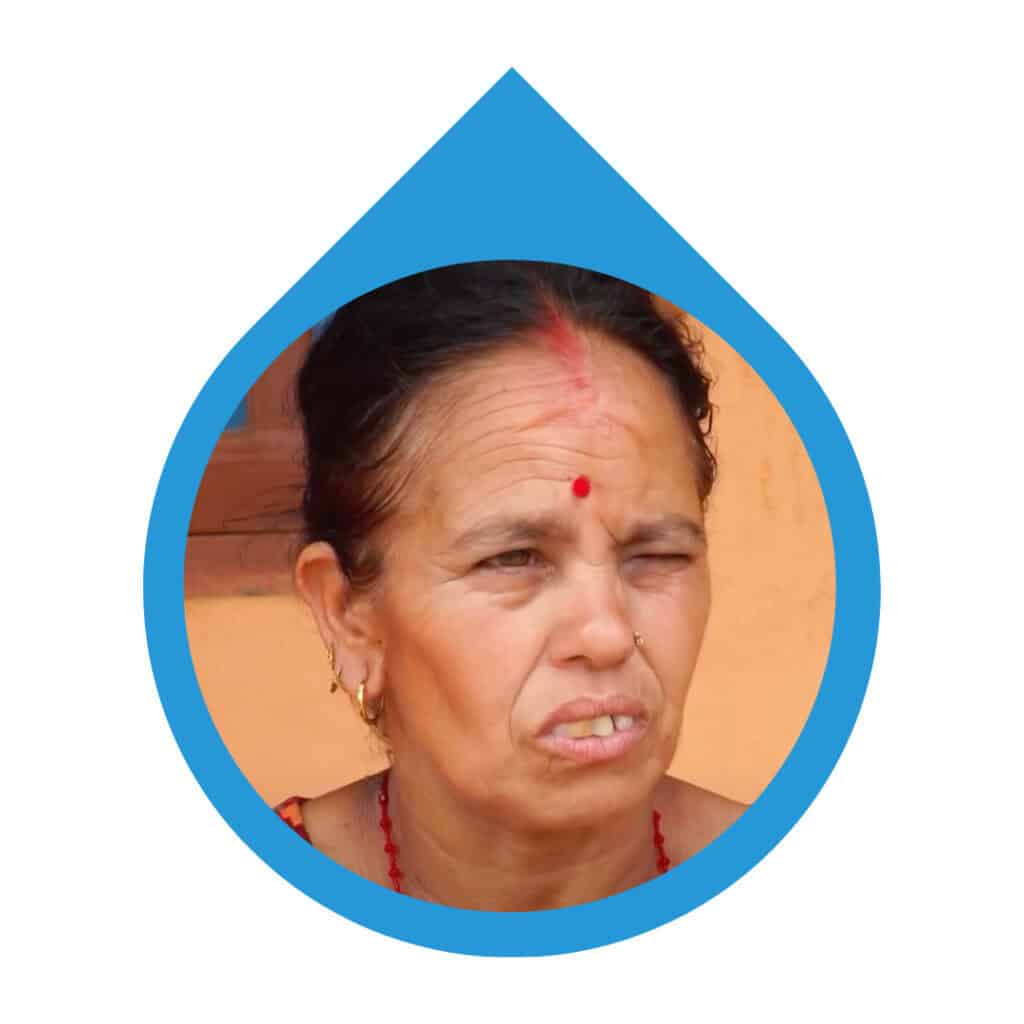
“Having water at our doorstep has made our lives much easier. Previously, accessing water was very difficult, but now it is convenient and readily available.”
— Seti Dahal
Local Community Member
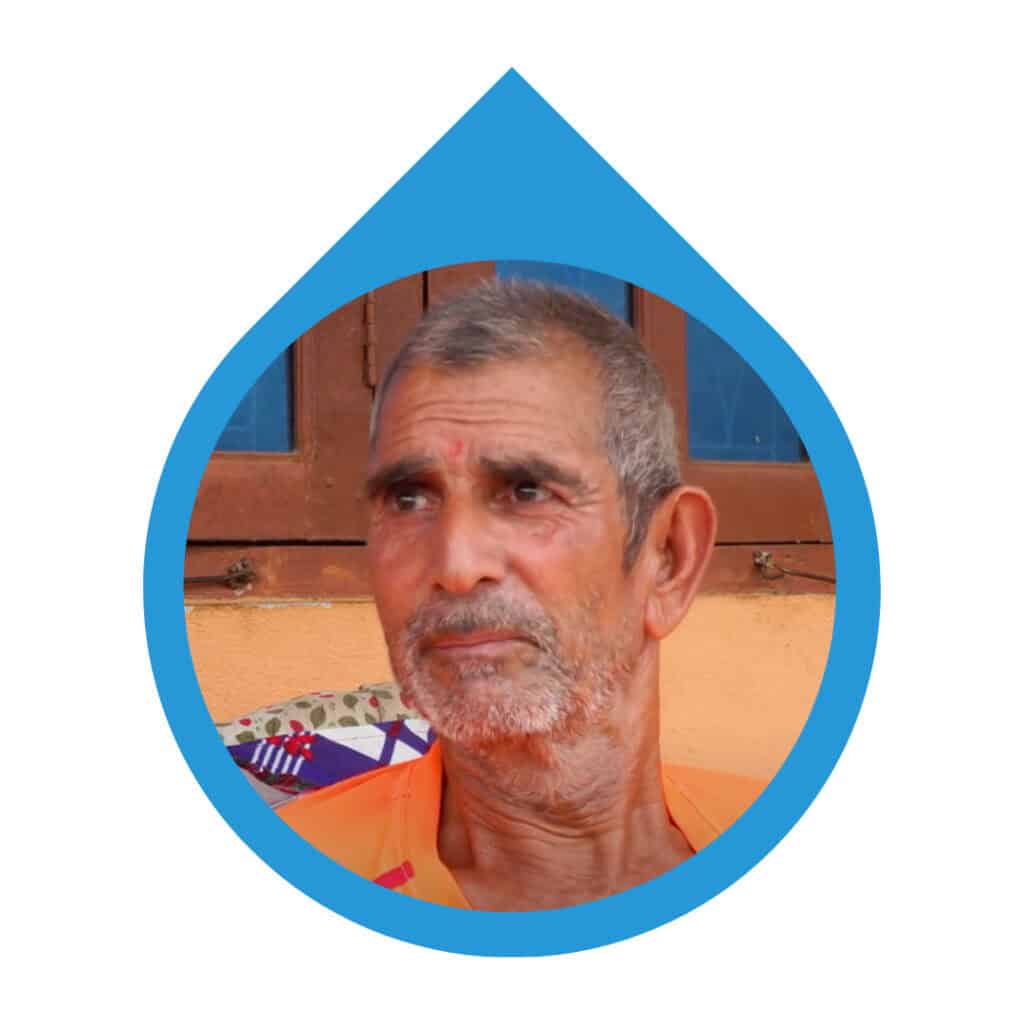
“Previously, we were bound to collect water from far away, spending a considerable amount of time on this task. This improvement will ease the lives of our sons and daughters-in-law in the future.”
— Netra Prasad Daal
Local Community Member
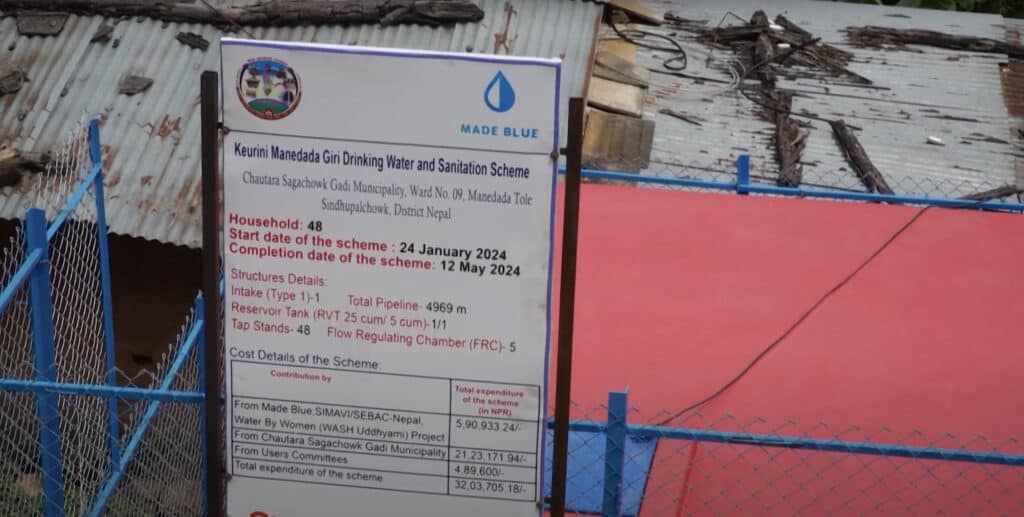
ACTIVE PARTNERSHIPS ENSURE LONG-TERM SUSTAINABILITY
The local water committees — with women in key leadership roles — are responsible for the daily management and maintenance of the systems, supported by training and supervision.
The municipalities have officially included the drinking water systems in their administrative records, allowing them to monitor progress and provide technical or financial support when major repairs are needed.
This shared responsibility ensures that Made Blue’s investment will continue to deliver safe drinking water well into the future.
Promoting hygiene
behaviour & practices
The project also promoted Water, Sanitation, and Hygiene (WASH) behaviour and practices through a number of different initiatives, including an interactive radio campaign, mass awareness campaigns and WASH Day celebrations, orientations to women’s/mothers groups’, and orientations in schools.

15 radio episodes
The WASH Talk radio programme aired 15 episodes on the most popular FM stations in Sindhupalchowk, Dolakha, and nearby districts.
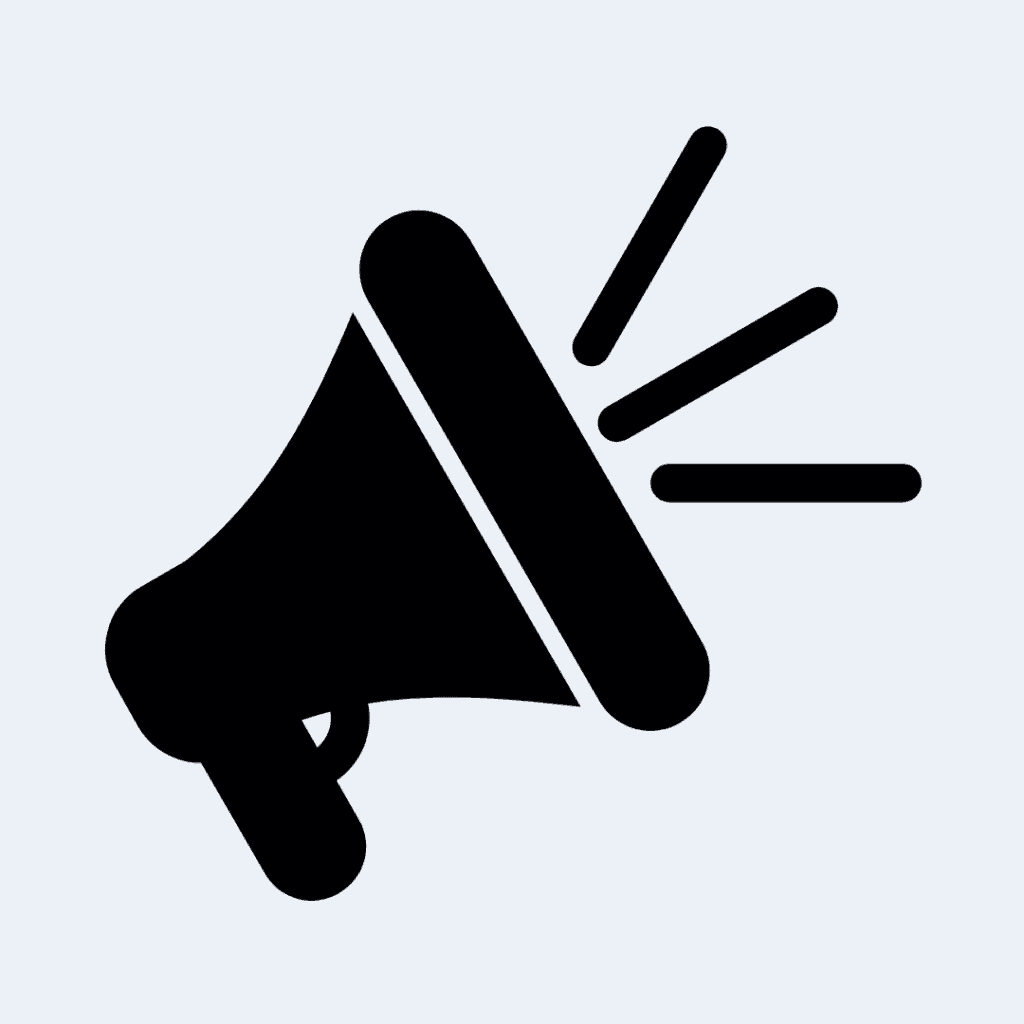
18 awareness events
Eighteen WASH Day celebrations and mass awareness events were organised in target municipalities, reaching 15,712 people.
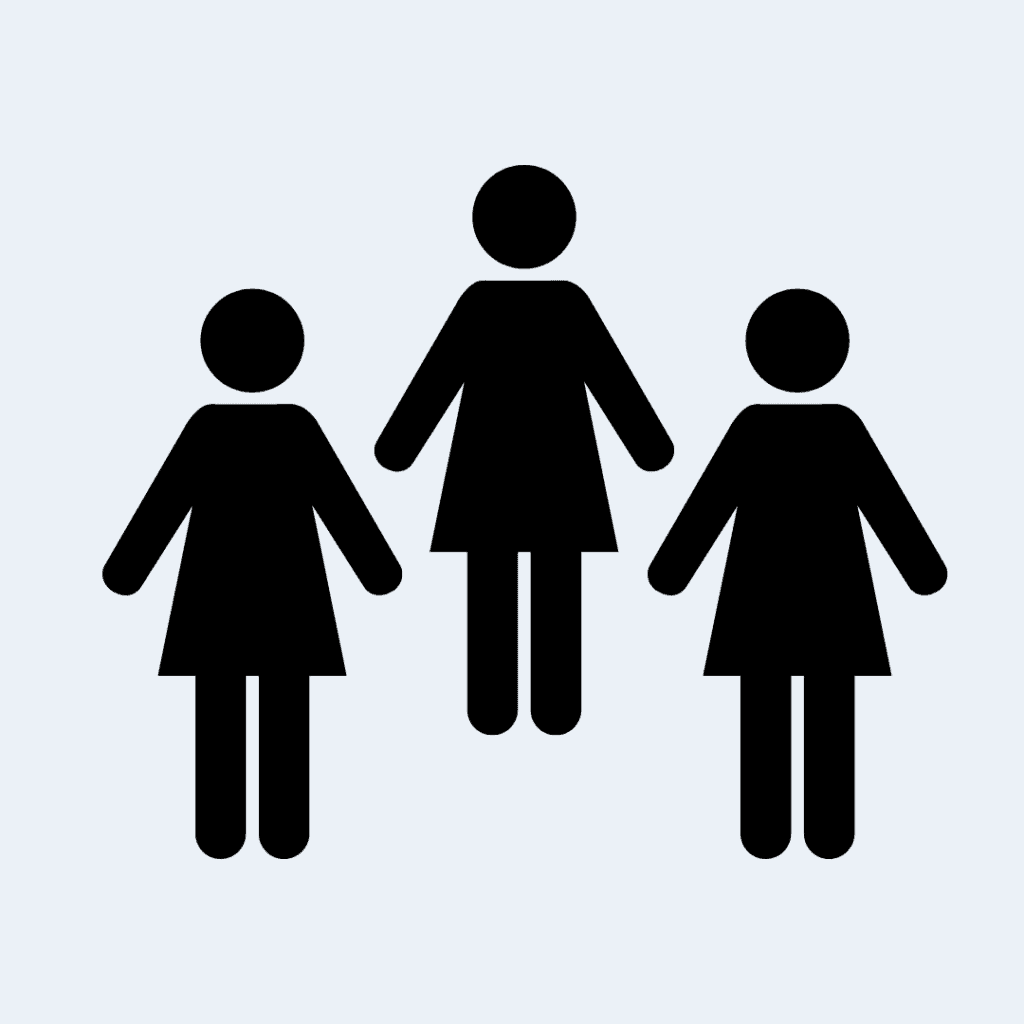
20 orientation sessions
Twenty WASH orientations engaged 489 people, mostly women, through mothers’ groups and women’s networks.

14 school sessions
1,440 students and teachers particip[ated in sessions focused on handwashing, safe toilet use, water treatment, menstrual hygiene, and waste management.
Key Lessons Learned
Implementing Water by Women in remote hill districts required constant adjustment. Conditions on the ground could not always be predicted at the design stage, but each challenge became a learning opportunity. By adapting to these realities, the project not only stayed on track but also delivered stronger, more sustainable systems.
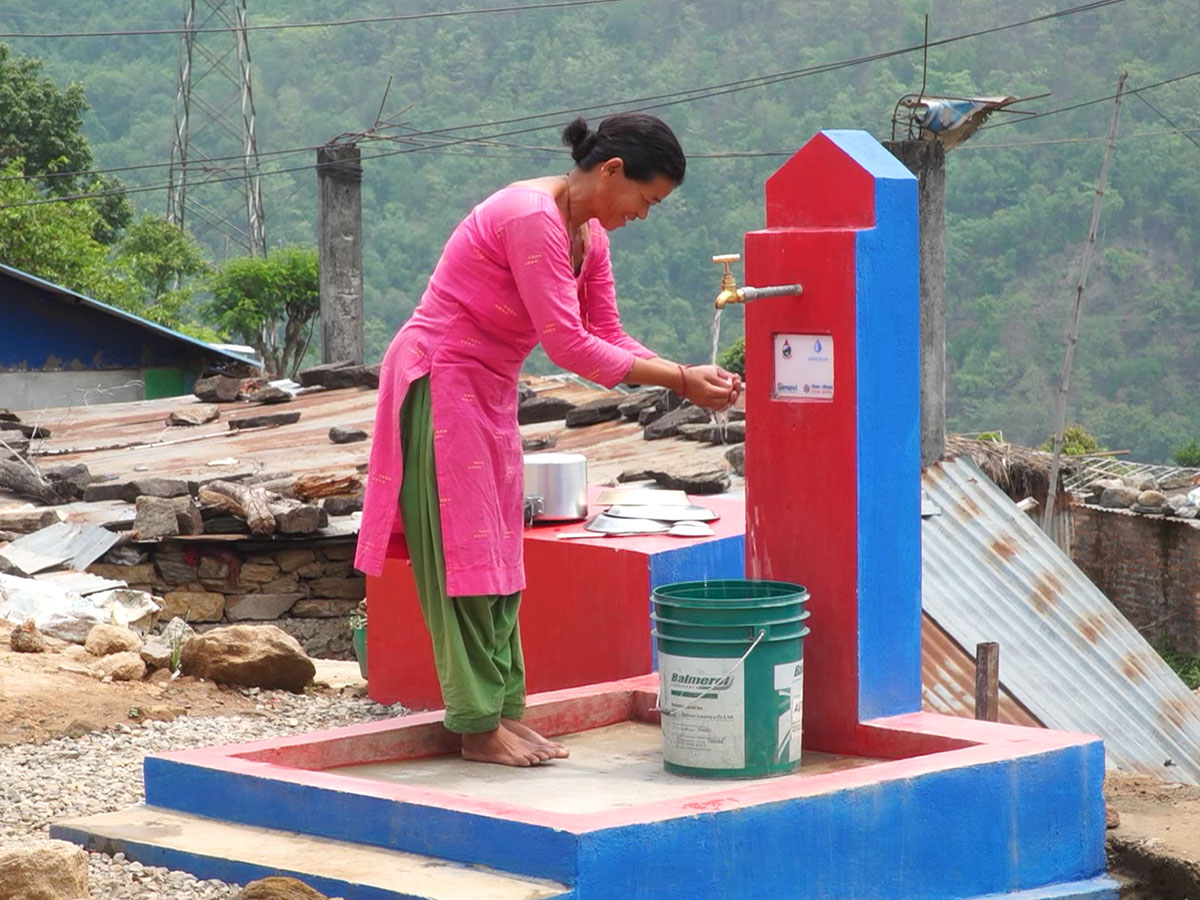
Women’s participation in technical planning increases ownership Women were initially underrepresented in technical decisions, yet their input proved crucial. When women participated in selecting tap-stand sites, satisfaction with the schemes rose, and women took greater responsibility for upkeep. The project ensured women were included in feasibility studies and design discussions, turning participation into practical ownership.
Strong Partnership with Local Government
Regular coordination with municipalities kept schemes aligned with government priorities and secured cost-sharing. Joint monitoring created shared responsibility and ensured that local governments now see the systems as their own — an important guarantee of long-term sustainability.
Financial Systems that Last
Each scheme has its own Operation and Maintenance (O&M) fund, built from small monthly contributions from households. These funds are already paying for repairs, spare parts, and the salaries of Village Maintenance Workers (VMWs). Because the money is raised locally, committees no longer have to wait for outside support to fix small issues.
In a rare step for rural water projects, all ten schemes were also insured against natural disasters. This safety net means that if a flood, landslide, or earthquake damages infrastructure, communities can recover quickly without falling back on donors.
Public audits and transparent recordkeeping give every household a chance to see how their contributions are used, building trust and accountability.
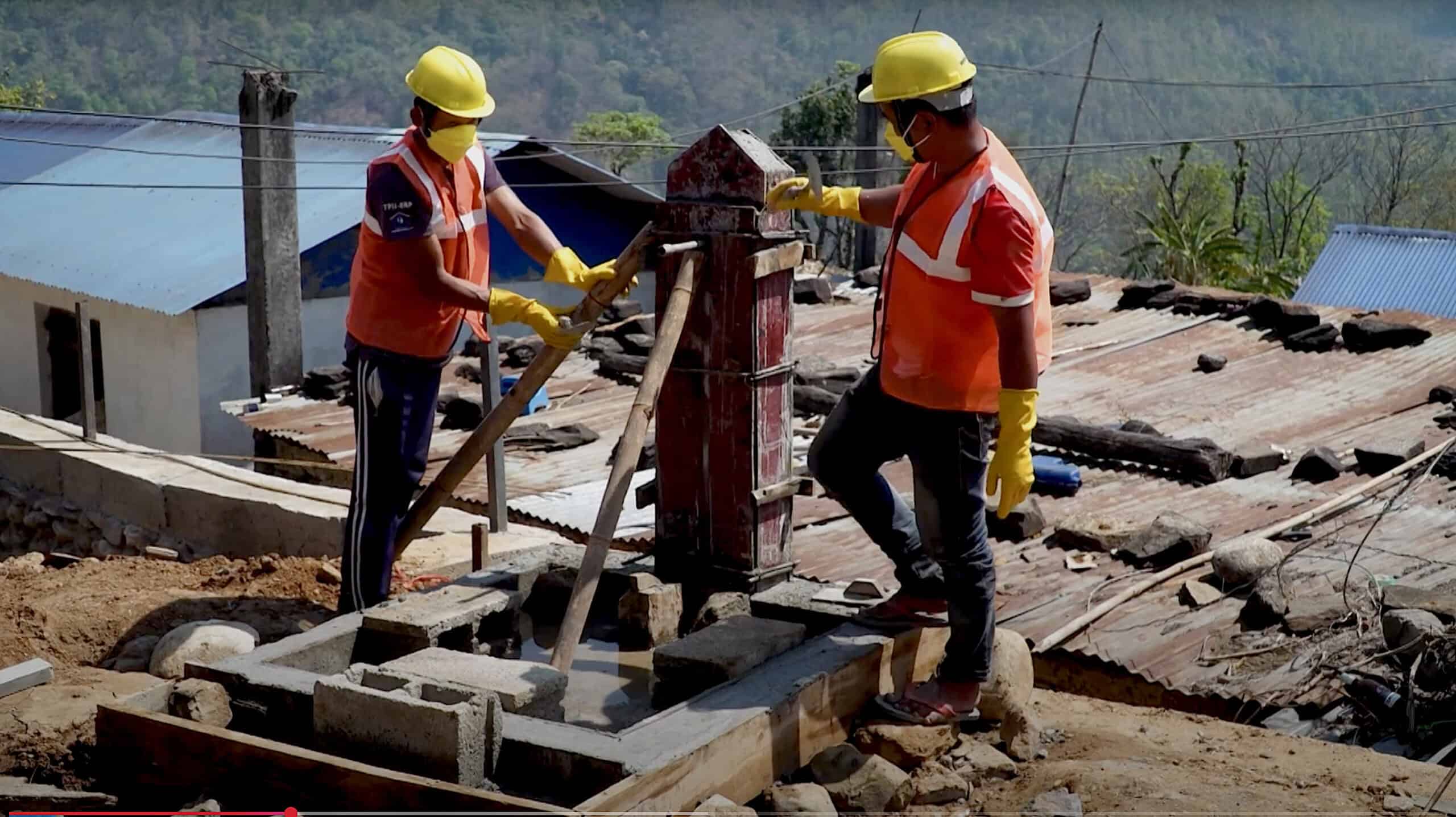
DISCOVER MORE – WATCH THE VIDEO:
In partnership with
For Made Blue and its ambassadors, this project is made possible thanks to the commitment of our dedicated implementing partner:
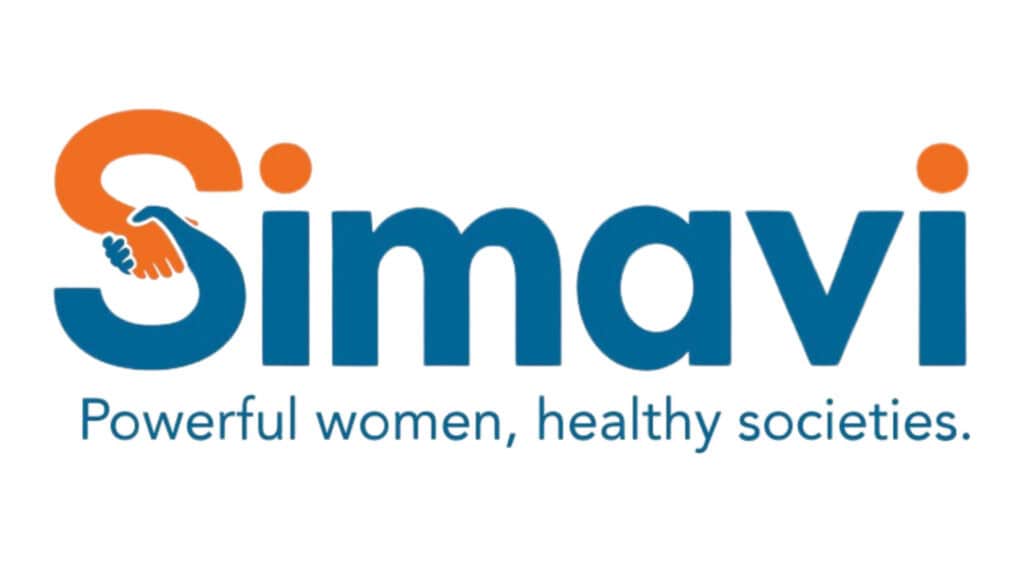
Simavi works with partners on projects in Africa and Asia that ensure women and girls have access to water, sanitation, and equal treatment. They place women at the centre of their work, base their approach on human rights, and work towards lasting change. Their international team works every day for girls and women, together with their partners in the countries they operate.
Want to know more about
our water projects?
From households in Bangladesh to villages in Nepal and remote schools in Ethiopia — every Made Blue project brings sustainable clean drinking water closer to reality.
Learn about our projects and the impact we’re making together:
Bangladesh: Mini grids for households
In Bangladesh, mini water networks will provide 33,670 people with direct access to clean drinking water.
Read moreSierra Leone: Water and nutrition at schools
With 7 water kiosks and the provision of milk powder for school meals, we help more than 55,000 people to a better future.
Read moreMalawi: Madzi for Malawi
In Malawi, more than 7 million people lack clean water. We are going to change this by building and repairing water points.
Read moreUganda: Wash, Learn & Share
In this follow-up of our WASH & Learn project in Uganda, we place an even greater emphasis on capacity building and sustainability, with a central role for entrepreneurs, women and girls.
Read moreNepal: Water by Women
In Nepal we restore water supplies and teach women to manage them as a business.
Read moreSierra Leone: Water for a good start in life
We are helping young and expectant mothers and their children live healthy and safe lives by investing in health center facilities in Sierra Leone.
Read moreContribute to Clean Drinking Water
with your organization
We are the Made Blue Foundation.
Our mission: clean drinking water for all.
Want to help make it happen?